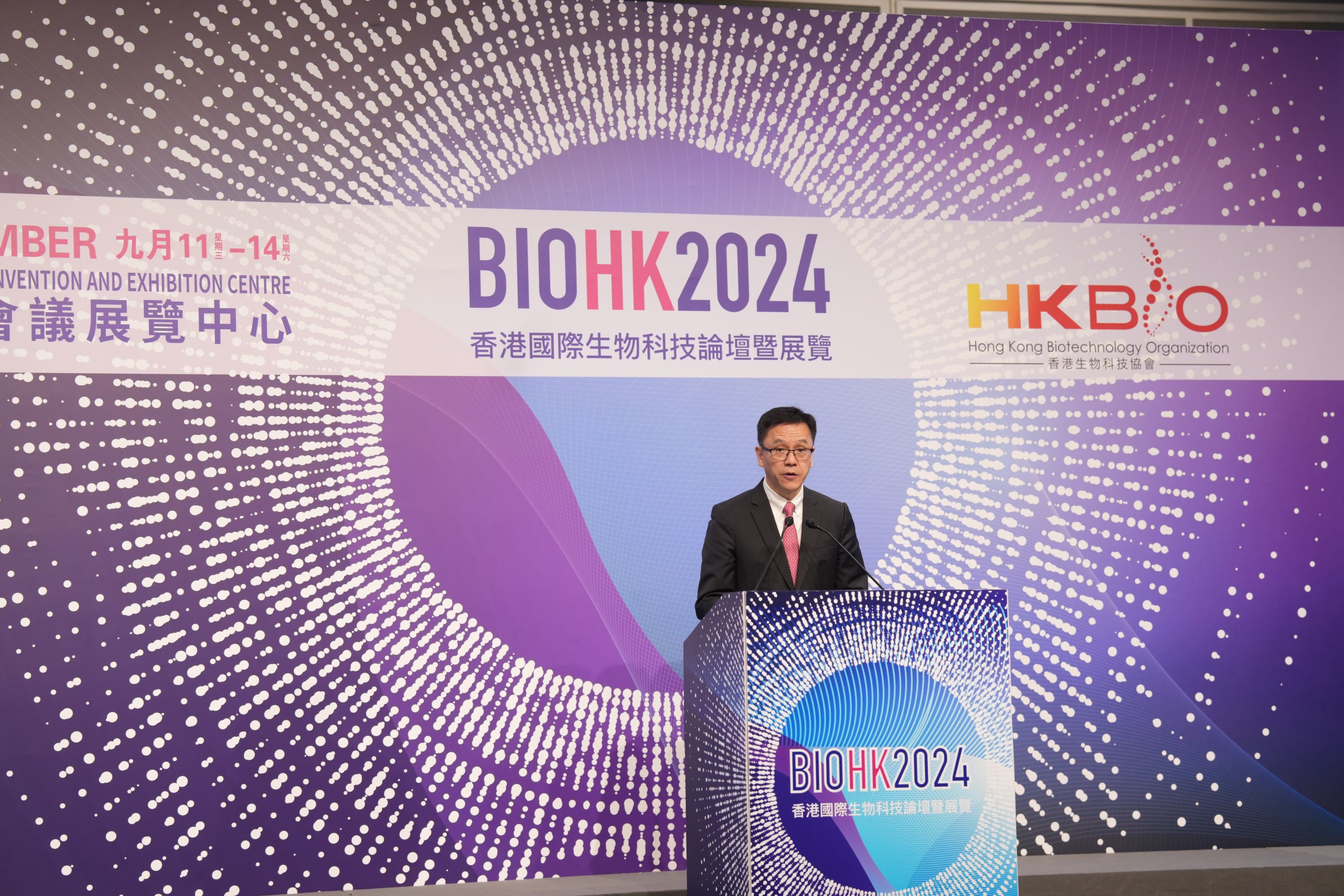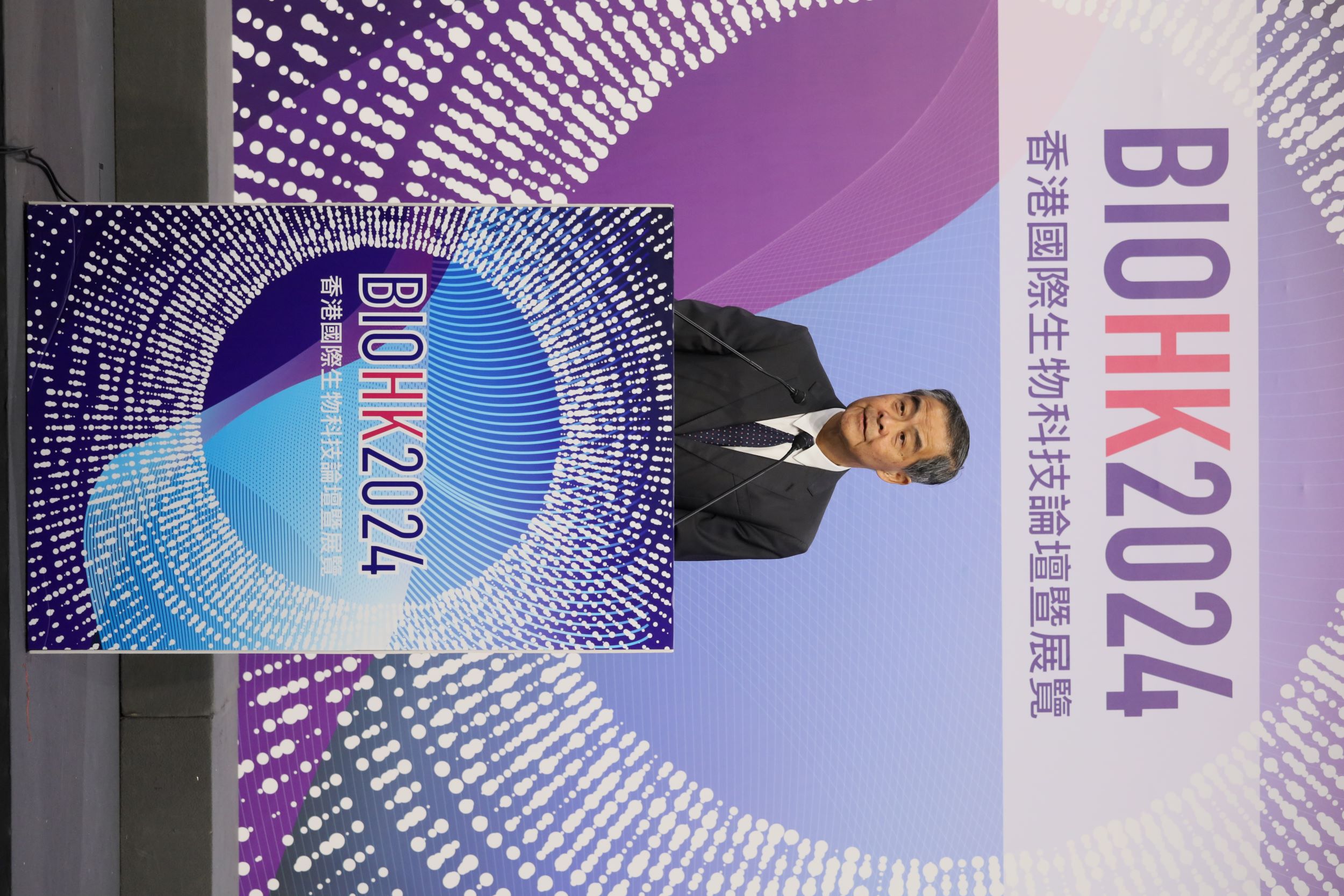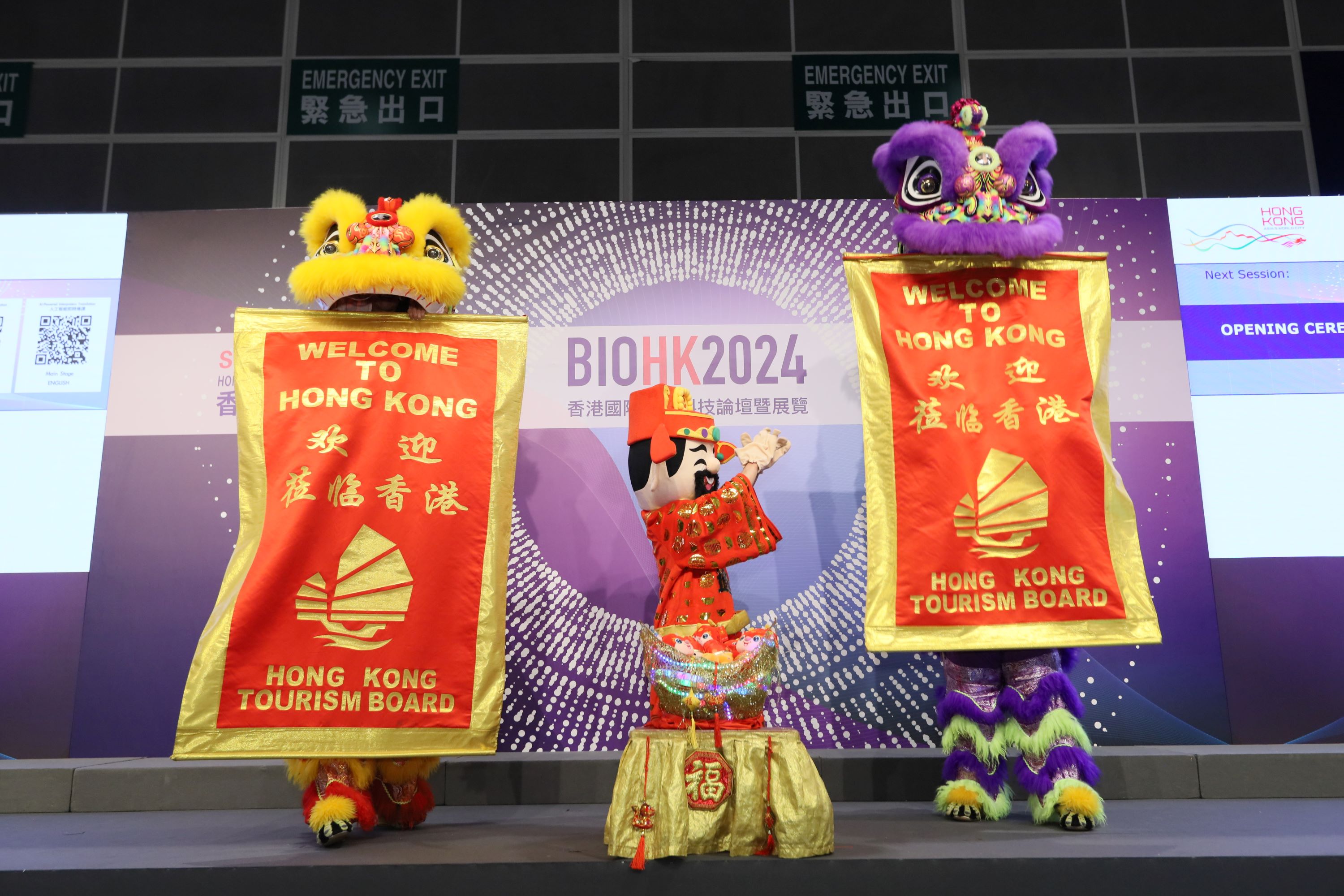
HONG KONG – Experts have called on Hong Kong to leverage its strengths and bolster collaboration with neighboring regions to boost the development of biotechnology, which plays a big part in the technological progress of the city and the nation.
They made the call during the opening ceremony of the Hong Kong International Biotechnology Convention 2024 on Wednesday, one of the largest international biotechnology summits in Asia.
The convention, held at the Hong Kong Convention and Exhibition Centre in Wan Chai, runs from Wednesday to Sunday. It is an annual international professional gathering which provides a platform for communication among global scientists and companies in relevant fields.
Sun Dong, the secretary for Innovation, Technology and Industry, said that this forum, centered on cutting-edge biotechnology, represents a step forward for Hong Kong to establish itself as an international biotechnology hub.
READ MORE: HK can seize ‘first-mover’ advantages in biocomputing, says Chan
With world-class universities, advanced research facilities, and a vibrant ecosystem, Hong Kong provides an ideal development platform for life and health technology companies, offering support in various stages from research and clinical trials to commercialization.
In addition, the government has earmarked HK$10 billion ($1.28 billion) to enhance the progress of life and health technology. A significant portion of this fund, HK$6 billion, will be directed towards the construction of Life and Health Technology Research Institutes.

In the future, the Hong Kong Special Administrative Region government will continue to facilitate cross-institutional and interdisciplinary research partnerships and advance biomedical research to promote technological development, Sun said.
Albert Yu Cheung-hoi, chairman of the Hong Kong Biotechnology Organization, said that this year’s convention aims to showcase the diversity and dynamics of biotechnology, and highlight the importance of interdisciplinary exchange and cooperation.
Yu noted that the city has long served as a super-connector linking the Chinese mainland and the rest of the world. It can fully leverage this role in the biotechnology sector, providing a unique platform to unite scientists and stakeholders, he said.
George Hara, CEO of DEFTA Partners, a venture capital firm based in San Francisco, said that Hong Kong should capitalize on its distinctive strengths—such as research proficiency, top-tier universities, and strategic geographical positioning—to commercialize biotechnology or life sciences. This industry can be a new booster for the city’s economic growth, Hara said.
Leung Chun-ying, the vice-chairman of the National Committee of the Chinese People’s Political Consultative Conference, said that technological innovation is crucial for the nation’s ongoing efforts to comprehensively deepen reforms.
To further enhance Hong Kong’s technological capabilities, the city needs to forge stronger ties with other cities in the Guangdong-Hong Kong-Macao Greater Bay Area, and also explore collaboration with additional Chinese mainland cities beyond this region, Leung said.
ALSO READ: HK biotech, health-tech heft touted at Saudi event LEAP
Other experts also shared the opportunities in biotechnology field for the GBA and China. Jonathan Symonds, chair of GSK, a British multinational pharmaceutical and biotechnology company, said that in the future, a significant paradigm shift, from treating to prevention, will be a focus of health systems.
China has already embarked on this journey, with prevention being a core element outlined in the Healthy China 2030 blueprint.
With its cutting-edge research centers, access to capital, and abundant data resources, the GBA possesses immense potential to evolve into a data-driven scientific ecosystem and a leading hub for prevention, Symonds said.
George Fu Gao, an academician at the Chinese Academy of Sciences, said that while China historically trailed the West in biotechnology development, the country now boasts one of the world's largest biotechnology industries.
Despite the challenges posed by the COVID-19 pandemic to China’s biopharmaceutical sector, it has also presented opportunities by enabling Chinese vaccines to reach a global audience and enhancing research standards.
“Viruses do not need a visa to travel around the world,” Gao said. Given that nobody can predict when the next major public crisis will occur, global cooperation is needed in the field, Gao added.

During the opening ceremony, Clara Chan Ka-chai, CEO of Hong Kong Investment Corporation, also shared the role of capital in fostering the city’s biotech ecosystem. Dennis Lo Yuk-ming, associate dean (Research) at the Faculty of Medicine of the Chinese University of Hong Kong, spoke about the application of DNA sequencing technology for cancer detection. Xu Wendong, hailing from Fudan University, and the recipient of the first prize in the State Scientific and Technological Progress Award in 2023, shared a breakthrough in the surgical treatment of hemiparesis.
On the first day of the summit, the biotechnology summit 14 domestic and international speakers gave speeches.
Over the next few days, hundreds of attendees including scholars, experts, entrepreneurs, and investors will participate in activities such as exhibitions, academic presentations, exclusive meetings, business matching, and company presentations.


